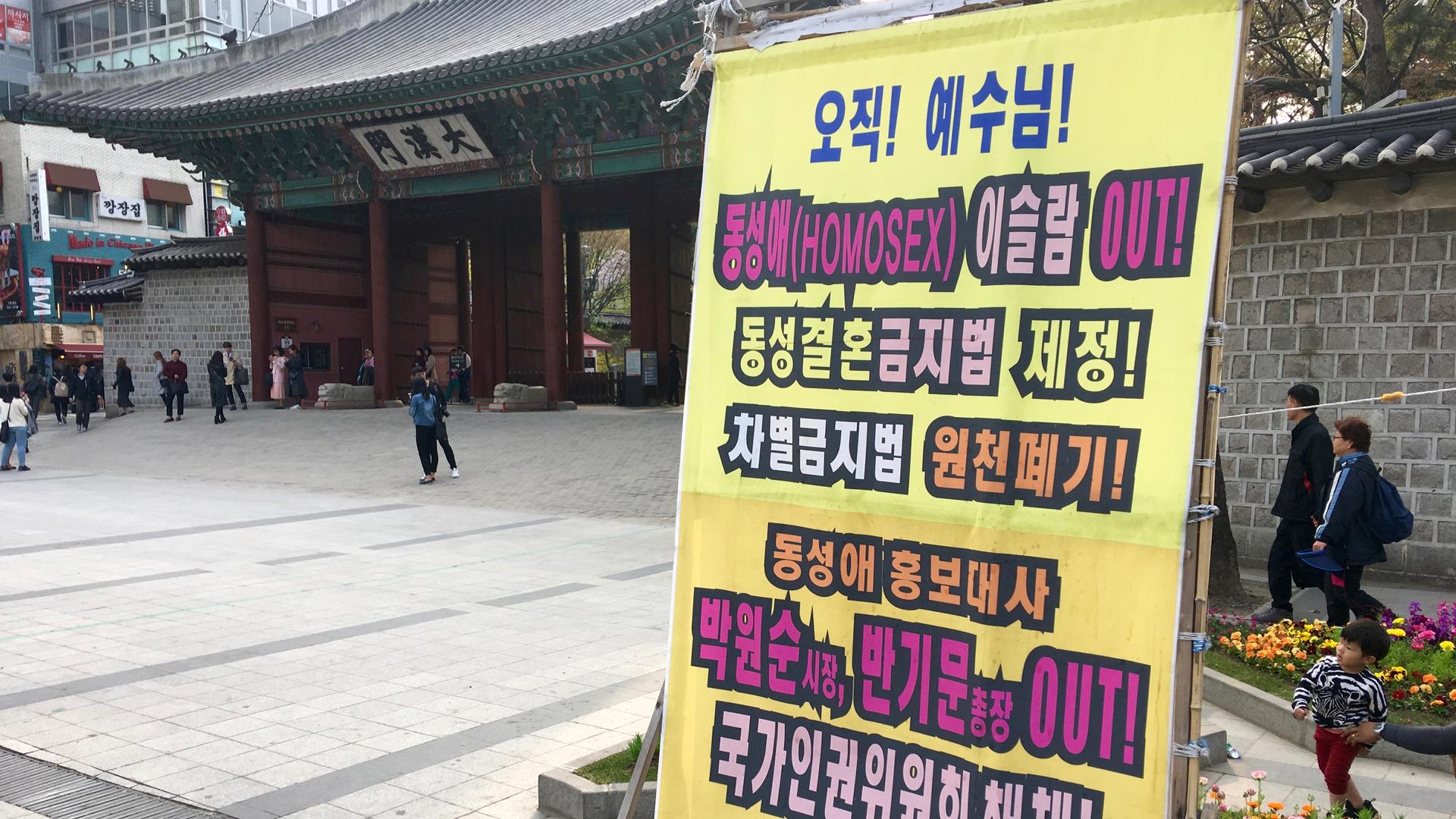Anti-gay signs of a Christian group were on display in front of the Deoksugung Palace in downtown Seoul on April 13, 2017.
A watchdog group that tracks cases of abuse inside the South Korean military says the army brass is carrying out a nationwide crackdown to identify and root out homosexual service members.
Earlier this year, a video surfaced online of two male soldiers having sex. Military officials say they responded with a proper investigation into the incident.
But Lim Tae-hoon, the head of a group called the Military Human Rights Center for Korea, says it’s a witch hunt that violates the army’s own regulations. Lim says military investigators have combed through phone records, collected data from a gay dating app and pressured suspected gays-in-uniform to out their fellow soldiers.
"Military investigators used the information they gained from the investigation on the sex video to track down other gay soldiers in the army, starting by forcing the suspects to identify who they had sex with and then widening their search from there," Lim told The Associated Press.
"The soldiers who are being investigated had sex with their partners under mutual consent and not inside the barracks," Lim said. "The army has infringed on the realms of privacy and is falsely claiming that these soldiers committed wrongdoings."
Most “able-bodied” men in South Korea fulfill a two-year mandatory stint in the army. There is no law against gays serving. But there is a regulation banning homosexual intercourse for members of the military.
Same-sex marriage is not permitted in South Korea, but gay sex is not illegal for civilians.
Still, LGBT people face a real stigma in South Korea today. There are very few openly gay celebrities or public figures, for example, in the country.
Conservative Christian groups have been increasingly outspoken against LGBT rights in recent years. In 2015, authorities in Seoul attempted to stop the annual gay pride march and queer festival. The event was eventually allowed to proceed. But Christian groups led protests against it.
“This [military probe into homosexual activity] is an obvious violation of human rights,” Kim Jiyoon of the Asan Institute for Policy Studies think tank in Seoul told the Financial Times. “But there is not going to be much public support [for these soldiers]. Korea is not ready for these issues. In the US, LGBT rights have escalated to become political issues. In Korea, it is not politicized yet.”
For some conservative Christians, homosexuality is seen as not only a sin against God but also a threat to the institution of the family and the South Korean nation, according to Nami Kim, an associate professor of religious studies at Spelman College in Atlanta.
“Homosexuality is viewed as a menace to society because it is believed to affect the national population growth negatively and to put national security in hazard by weakening the military, and thereby remaining vulnerable to the potential military aggression of North Korea,” Kim writes in her book, “The Gendered Politics of the Korean Protestant Right: Hegemonic Masculinity.”
Some members of the religious right in South Korea have taken to using a disparaging term for LGBT people that translates into English as “pro-North Korean gays.”
Lim’s watchdog group says the military has compiled a blacklist of 40 to 50 service members suspected of homosexual activity. Army officials have denied that such a blacklist exists.
